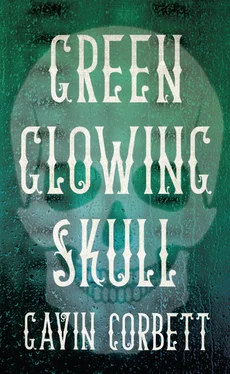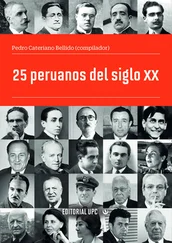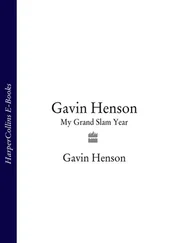Back in his seat he realised that his thumb was gone. It didn’t pain him one bit, and hadn’t when it came off, otherwise he would have noticed that he’d lost it when he did. All he could do now was wait for his ball to reappear through the chute. Perhaps five minutes went by and still it had not returned. He did a test: he hefted all the other balls out of the rack and rolled them down the trough and watched them fall into the trap. One by one, and with a suck, they returned. But his brown ball never did.
‘What happens to the balls when they don’t come back?’ he asked a passing cleaning woman in pink and white overalls.
By now his blood was everywhere.
‘Shee-it,’ said the woman. She ran.
He looked up at the digital screen that showed his points tally and was sure he saw there his brothers. Breffny was holding the brown ball with Jeremiah’s thumb in it and he would lift the ball between his face and Emmet’s and they would kiss it through their laughter. In this vision the image was drained of colour, not quite monochrome, but almost, and of low contrast.
The gang of white skittles still seemed to be laughing and the William Tell Overture continued to blare over the speakers.
Jeremiah sprinted down the lane, the sound of his feet like thunder, gathering speed all the while until, two-thirds of the way, he launched himself like a bullet at the lead skittle. The moment he hit the wood he came to a painful stop, resulting in a loud squeak and a friction burn to his chin.
Clive baled out of a nightmare and into something far worse. In his head — his nightmare — his head had exploded. Outside his head — reality — his head was about to explode. He ripped every drawer from his bureau. The floor became a mess — of papers, coins, scapulars, books, lighters, video tapes, medicines, batteries, broken machinery, broken wood. He searched frantically for the document that he needed. By now, critical moments had elapsed.
He dialled 911.
‘I’m afraid to report,’ he said, ‘that I don’t have to hand my healthcare plan, so it’s with regret that I’ll have to cancel the ambulance.’
‘Wait a minute, madam. You don’t have to cancel an ambulance because you can’t find your healthcare plan.’
‘Yes, but you don’t understand. The only place that can help me is Saint Charles’s Anglican Hospital Head Trauma Unit and that would require a journey by ambulance of a distance my insurer may not be prepared to pay for. Unfortunately, I would need to check the terms of my plan to see whether or not this is so. Also, being nominally Roman Catholic, I would prefer to know for sure whether or not my insurer will pay for treatment in an Anglican hospital.’
‘If it’s an emergency you’ll be treated in the nearest hospital. What is the complaint, madam?’
‘I’m having a stroke.’
‘Your nearest hospital will deal with that, madam. Why do you feel you need to go to Saint Charles’s, madam?’
‘Because I’ve seen the ads, and it’s the only place. They’re specialists.’
‘Madam, try to remain calm. What’s your address?’
‘1202, The Birches, Stuyvesant Town.’
‘Aw, madam, there’s no record of an ambulance having been dispatched to that address. Would you like me to send an ambulance?’
‘How much will it cost me?’
‘Madam, I’m going to send an ambulance around.’
‘No, please. Don’t.’
‘Madam, let me take care of this. Madam …?’
He quietly put down the phone whereupon further critical moments elapsed. He stood in the dark of his hallway with his hand on the receiver and looked out through the panel of green glass beside his door. He was hungry. No he was not hungry. Yes — he was hungry. Nom, nom, he went. He fancied a cup of coffee. And pancakes. Maybe some Japanese food. Umami, he said. He put on a sweater, trousers and shoes, turned off all the lights in his apartment, pulled all the blinds, and went for a walk.
He summoned Quicklime later that day. They arranged to meet in a branch of Offal Cabin. Quicklime was already there when Clive arrived. It was a tight squeeze — they were in a tiny cubicle. Quicklime looked anxious. He seemed sweatier and puffier and altogether more pitted and vermiculated than he had before. Simple-faced characters from the Offal Cabin advertising universe were joined hand to hand in a paper entrail whose nadir dangled inches from his head. He had already ordered. Pleasantries ensued. Clive ordered. Perhaps Quicklime was right to be anxious. Then Quicklime said:
‘So, my friend. This business?’ His eyes trembled with suspicion, and his fingers compressed his Guinea Patty, wringing the grease on to the table.
Clive went to speak. Then shied.
‘Mister Quicklime …’
He unconsciously toyed with his sweetbreads.
‘Clive, leave that alone. You brought me here to tell me something.’
‘Yes …’
‘Clive?’
‘I can’t go back to Ireland. I’m sorry to have to tell you that I’ve changed my mind, and that I want —’
‘Oh, the boat is booked. The boat is leaving next Saturday week, like we agreed.’
‘Let the boat leave without me then.’
Quicklime took a bite of his patty, dipped his head and shook it. ‘You can’t do this. The Office of the President of Ireland would lose a lot of money.’
‘I’ve made up my mind.’
‘You’ll remake it. The President will sue. And who is more powerful relative to you, a member of the Irish diaspora, than the President of Ireland, who controls all his subjects, and all the diaspora? There’s a new law on the statute books.’
‘I can’t explain, Mister Quicklime.’
‘The President lights a candle every night for the likes of you. Indeed, he has taken a personal interest in your — Clive Sullis’s — case.’
‘Mister Quicklime, if I go back to Ireland, I will die. I had it all wrong, you see. When I came back to you, it was to organise my affairs, and I thought it was a prelude to death. It was an acceptance of death. But I realise that I don’t want to organise my affairs. I want them to remain as they are. I want them to remain as they are, and I want to remain here, in America. I will deny death. I will live on and again, and on and again. I’ve done it once, and I’ll —’
‘No, the paperwork is already filled out’ — he flung his half-eaten patty down — ‘and my team have come over from Ireland. They’re all set to start on your apartment. There’s no going back. The process is in train. We agreed all of this.’
‘With the greatest respect, I haven’t signed off on any agreement yet.’
Quicklime sighed, wiped his hands on a napkin, and sat back. ‘No. That’s true. You haven’t signed anything. Mea culpa for that.’ He closed his eyes and rubbed his brow. ‘So,’ — he sighed again, rolling his napkin into a ball — ‘what we’ll need to do now is get your cancellation on a firmer legal footing.’
‘If you say so, yes, all right.’
‘No, it shouldn’t be too much of a problem. But we must sign some papers now, cement this. Time is of the essence.’
‘Yes, yes.’
Quicklime stood up from his seat, drawing his trench coat over his shoulders.
‘Right now?’ said Clive.
‘Yes. Come with me. I have some pro-forma documentation back in the flat. We can change the wording a bit. Maybe devise something more suitable to your situation.’
A taxi took them on a three-minute ride to a door beside a launderette. They went inside, up two flights of stairs to a second-floor apartment in the back of the building. The rooms were mainly grey in colour; in the living area the bare floorboards were coated in a grey undercoat. A single chair faced the window.
Читать дальше
Конец ознакомительного отрывка
Купить книгу












